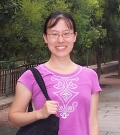
Diana Cai is a Genetics and Genomics graduate student in the Biological and Biomedical Sciences program at Harvard University. Her research interests include gene regulation, computational biology, and neurobiology. She was previously an undergraduate at Columbia University, where she majored in biochemistry and worked to better understand neural development. Outside the lab, she enjoys the performing arts, doing various sports, reading for pleasure, hanging out with friends and family, and experiencing new things.
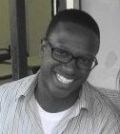
Dr. Tim Downing is a Postdoctoral Associate in the Epigenomics Program at the Broad Institute, Inc. in Cambridge, MA where he holds a joint appointment in the Department of Stem Cell and Regenerative Biology at Harvard University. His current research explores the influence of the chemical and biophysical microenvironment on cell state transitions via epigenomic modulation in adult and stem cell populations. He hopes to use this information to help maximize the potential of stem cell technologies and greatly improve the design of next-generation biomaterials for regenerative medicine. In 2013, Tim received his Ph.D. from the UC Berkeley/UCSF Joint Graduate Program in Bioengineering. His dissertation research demonstrates, for the first time, that biophysical cues can significantly improve upon and facilitate the reprogramming of adult fibroblasts into induced pluripotent stem (iPS) cells through mechanomodulation of the cells' epigenetic state. A parallel focus of his work aims to create platforms that allow for the combined delivery of therapeutic drugs, multipotent cells, and nano to microscale topographical guidance cues for meaningful tissue formation in spinal cord regeneration after both injury and neural tube defect (e.g., spina bifida). Prior to graduate school, Tim received his B.S. in chemical engineering from Northwestern University in Evanston, IL. Outside of research he enjoys international travel, snowboarding, and mixology.

Kristen Kozielski is currently a third year Ph.D. candidate in the Biomedical Engineering department of Johns Hopkins University. She is completing her thesis research in the laboratory of Dr. Jordan Green, which is focused on drug delivery and biomaterials. Her thesis work focuses on nonviral strategies for siRNA delivery to brain cancer. In particular, she is interested in creating nanoparticles that can target brain tumors and knockdown genes responsible for tumor behavior with the long-term goal of creating a translatable technology capable of reducing tumor growth and recurrence.
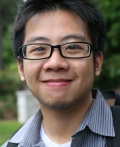
'Jack' Hoang Lu is currently pursuing a PhD in Chemical and Biological Engineering at Princeton University, where he is conducting research in targeted drug delivery and medical imaging in Professor Robert Prud'homme's laboratory. He has received a MSE in Bioengineering from the University of Pennsylvania and a BS in Chemical Engineering from Columbia University. He is also pursuing a graduate certificate in science policy at the Woodrow Wilson School of Public and International Affairs, and has a minor in East Asian Studies. Outside of lab, he enjoys helping others cook, eating, tree climbing, and engaging in other fun expeditions.
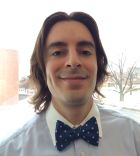
Michael J. Mitchell is a doctoral candidate in the Biomedical Engineering program at Cornell University, in the lab of Dr. Michael R. King. His research is focused on the development of computational and experimental models of cellular mechanotransduction in inflammation and cancer. Specifically, he is interested in fluid shear stress exposure as a regulator of receptor function and expression in both white blood cells and circulating tumor cells (CTCs), which is critical in the progression of inflammation and cancer metastasis. He has a secondary interest in developing novel strategies to trap and induce apoptosis in CTCs in the circulation.
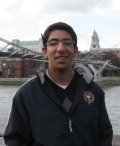
Mohamad Ali Najia is a rising senior at the Georgia Institute of Technology pursuing B.S degrees in Biomedical Engineering and Computer Science. Since the fall of 2010 he has worked in Dr. Todd McDevitt�s Engineering Stem Cell Technologies Laboratory within the Department of Biomedical Engineering. He is the Managing Editor of Submissions and Review for the Georgia Institute of Technology�s undergraduate research journal and a statistical consultant in the Center for Bioengineering Statistics for bioengineering faculty and staff. In the summer he will be an undergraduate scholar in the Harvard-MIT Bioinformatics and Integrative Genomics Program. He plans to pursue a PhD in Bioengineering and obtain a position in academia where he can combine his stem cell and computing knowledge in order to develop computational models of stem cell fate to ultimately elucidate novel methods to direct stem cell differentiation.

Luvena Ong is currently a PhD candidate in the Harvard-MIT Division of Health Sciences and Technology. She is conducting research in DNA nanotechnology under the guidance of Peng Yin. Outside of lab, she enjoys cooking, feeding others, climbing trees, and engaging in other fun expeditions.

Janna Serbo is a forth year Ph.D. Candidate in the Department of Biomedical Engineering at Johns Hopkins University, working in Dr. Lewis Romer's laboratory at the School of Medicine. Her graduate research involves the development of a 3D platform to study microvessel growth and its interactions with extracellular matrix, as an in vitro model system for vasculogenesis. She received her B.S. in Bioengineering from University of California, Berkeley, graduating with High Honors. In her spare time, she enjoys dance, travel, and yoga.

Karin Wang is a graduate student working for Dr. Delphine Gourdon, in the Department of Biomedical Engineering at Cornell University. Her research goal is to investigate how tumor-associated stromal cells are able to initiate a microenvironment that would promote cancer progression. Specifically, she studies how altered extracellular matrix fiber conformation disrupts mechanobiological signaling between matrix components and between the cell and its surrounding matrix.